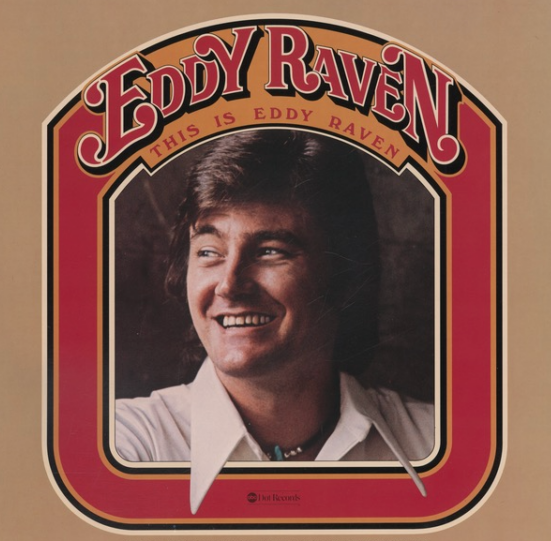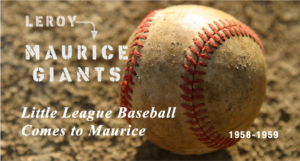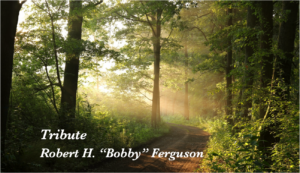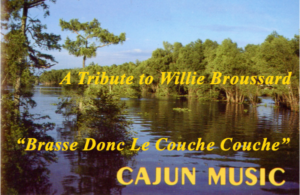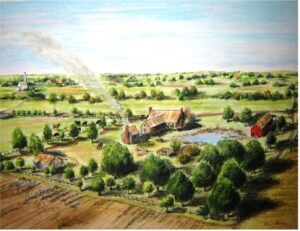Written by David O. Trahan
Contributors: Lester Gauthier, Jean Dudley Trahan, Debra Broussard
A Tribute to Eddy Raven: Maurice Country Music Legend
In and around the small towns of Maurice and Milton, Louisiana, a unique blend of Cajun and country culture permeates the air, shaping the lives of those who call this area home. Among these, one man stands out for his extraordinary contributions to country music: Eddy Raven. Born Edward Garvin Futch on August 19, 1944, in Lafayette, Louisiana, as one of eleven children of his parents, Levy Garvin Futch and Minerva Broussard Futch.
The family lived just north of Maurice along River Road for a time. His Dad, a long haul truck driver, was a guitar player and played in local bands when off the road. He put the guitar in Eddy’s hands when he was 6 or 7 years old, and Eddy recalls he wrote his first song when he was just 8 years old. Unfortunately, Eddy’s father passed in 1970, when Eddy was 26 and just getting started with his music career.
This tribute to Eddy Raven celebrates his accomplishments and the impact he has had on country music. His roots in Louisiana’s small-town charm and lasting career make him a figure worth recognizing. For readers of Maurice Today, this is not just a story about a country star; it’s a reminder that greatness can come from anywhere, even from the cozy corners of Louisiana’s Acadiana region.

High School Days
Edward Futch went to school in the Milton-Maurice area. As some readers know, the Vermilion River separates Maurice and Milton. During his early high school life, Eddy lived on the Milton side of the Vermilion and attended Milton High School. He played for the Milton High School baseball team during his junior year. His team would win the Class C State Championship in baseball that year.
His family moved to the Maurice side of the river, and Eddy attended Maurice High School for his senior year. As recalled by J Dudley Trahan, a classmate, he and Eddy shared the first-hour study hall. Dudley would work on his school studies, and Eddy would work on his songwriting. Dudley recalls how Eddy was always short on paper to write on, and he would give him what he needed.
Years later, as a gesture, he reminded Eddy that he was “loaning” him those notepads and wondered how that figured into his success as a songwriter. As it turned out, Eddy could not stand on stage with his fellow graduates because of a conflict with a booking to play music. Dudley and Eddy have remained life-long friends since that time.
Early Life: Roots in Acadiana
Eddy Raven’s story begins around Maurice and Milton—an area known for its deep connection to Cajun culture and its rich musical heritage. Growing up in a family that cherished music, Eddy was surrounded by the sounds of traditional Cajun music, country, and the emerging rock and roll of the 1950s. In the Futch household, music was more than just entertainment; it was a way of life.
From a young age, Eddy was captivated by the guitar. His early influences included country greats like Hank Williams and Lefty Frizzell, and soon enough, Eddy found himself playing guitar at local events. He was honing his skills not only as a musician but also as a storyteller. His ability to capture the essence of small-town life, love, heartache, and resilience would become a hallmark of his songwriting career.
Maurice and Milton were small, tight-knit communities where people supported one another. This community support helped nurture Eddy’s budding talent, allowing him to dream of a life in music. Though the path to stardom seemed far away from these small towns, Eddy Raven’s determination and natural talent were undeniable.
After graduating high school, he regularly played with his local band, Eddy Raven and the Glades, at many local festivals and events and performed in many local dance halls across South Louisiana. He continued to write songs during this time, and this experience would serve him well in his future career.
In 1970, he was discovered by Jimmy C Newman (the “C” stands for Cajun), a Louisiana singer-songwriter born near Mamou, Louisiana, and an established artist in Nashville, Tennessee. Newman saw something in Eddy that he wanted to share with the country music world. It was a difficult decision for Eddy.
As he recalls in a 1981 interview, Newman offered to help him enter the Nashville music scene as a songwriter. He thought about it for a few months. He was considering how his wife, Gayle, was from Lafayette, where she and Eddy married in 1966. Ryan, his son, was born, and his father had passed away. He flew to Nashville and signed a writing contract with historic Acuff Rose Music, formed by Roy Acuff and Fred Rose in 1942.

Lurnis “Tin” Duhon, a friend of Eddy in the Maurice area, was helpful in Eddy’s early music career. Tin would accompany Eddy and assist him in gaining access to businesses that had age restrictions, ensuring Eddy could perform. He also kept a stock of Eddy’s latest recordings and would promptly place them on the local jukebox. During the week, Tin lived in Port Arthur, Texas, where he worked as a chemist for Gulf Refinery. He would return to the Maurice area on weekends, traveling with Eddy.
Eddy and Tin shared a close friendship, and Tin served as Eddy’s Best Man in his wedding with Gayle Breaux in 1966. Locals say that Tin and another Maurice area resident, Pressley Maturin, a local businessman and musician, always supported Eddy’s quest to move to Nashville, which happened in 1970. After signing with Acuff Rose Music, Eddy left for Nashville so quickly that he didn’t have time to sell his home. Rather than delay his move, he turned his house over to Tin Duhon’s nephew, Kenneth Primeaux, and his wife, Margo, for the mortgage note.
The Birth of Eddy Raven: A New Musical Identity
Eddy made a significant decision that would shape the rest of his career—he adopted the stage name Eddy Raven. The new name reflected his evolution as an artist and a nod to the mysterious, almost poetic side of his songwriting. While his birth name, Edward Garvin Futch, carried the weight of his parent’s heritage, Raven was a name that symbolized his aspirations for a broader, more universal appeal along with a deeper meaning below the surface.
As he explained to a writer in a 1990 interview and story for American Radio History, his first recorded song he had written was called “Once a Fool.” When he received the pressed records, he thought the company had sent him someone else’s records because the labels mistakenly credited one “Eddy Raven.” It wasn’t until years later that he found out that his stage name was significant. One of his aunts called to tell him she was happy he used a family name. Raven comes from his Cherokee ancestry. He has Cherokee roots on his father’s side and German, French, and Acadian ancestry on his mother’s side.
Eddy Raven made his first official foray into recorded music with the single “Once a Fool,” marking the beginning of a prolific and influential career. Although the single did not achieve instant success, it set the stage for what was to come—a slow and steady rise to prominence in the country music world.
Throughout the early 1970s, Eddy continued to release music and establish his presence in the industry. His songwriting ability caught the attention of industry insiders, and soon, he found himself working with some of Nashville’s most respected musicians and producers. This marked the start of his deep connection to the Nashville music scene, a relationship that would flourish in the future.
Songwriting Success: A Country Music Master
While many people know Eddy Raven for his powerful performances and distinctive voice, his success as a songwriter is equally impressive. Eddy’s songwriting talents have shaped not only his career but also the careers of other country music legends. His ability to craft lyrics that resonate with listeners across generations sets him apart from his peers.
Eddy’s songwriting often explores themes of love, heartbreak, and personal growth—universal emotions that find expression through the lens of his own experiences. His Cajun roots are subtly woven into his songs, giving them a unique flavor that distinguishes him from other country artists.
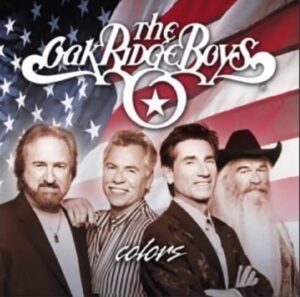
Some of his most successful compositions were recorded not just by Eddy himself but also by other prominent country artists. His songwriting contributions helped propel the careers of icons like Johnny Cash, Roy Orbison, and Waylon Jennings. An excellent example is the song “Thank God for Kids,” a heartfelt song about the innocence and wonder of childhood, which was recorded by The Oak Ridge Boys and became a hit in 1982, reaching No. 3 on Billboard.
Recently, in an interview on Taste of Country, Duane Allen of the Oak Ridge Boys said this song was one of the top songs performed by the band, next to their big hit “Elvira.” This song remains one of their most enduring legacies in country music, cherished by listeners for its sincerity and emotional depth. It is quite an accomplishment.
Raven’s lyrical style balances accessibility with depth, making his songs relatable and profound. Whether he’s writing about the complexity of relationships or the trials of everyday life, his words always seem to strike the right chord.
The 1980s: Commercial Breakthrough
Though Eddy Raven had been active in the music scene since the late 1960s, it was during the 1980s that he became a household name in country music. The decade saw him reach new heights as a performer and a songwriter, with a string of successful albums and chart-topping singles that solidified his place in country music history.
His breakout single, “I Got Mexico,” released in 1984, became a No. 1 hit on the country charts and remains one of his signature songs. With its catchy melody and heartfelt lyrics, the song captured the carefree feeling of escaping life’s troubles, a theme that resonated deeply with country audiences. “I Got Mexico” was followed by a series of successful hits, including “Shine, Shine, Shine,” “Operator, Operator,” and “Sometimes a Lady,” all of which became staples of 1980s country radio.
During this period, Eddy Raven’s sound evolved. While staying true to his country roots, his music also incorporated elements of rock and pop, making his songs more accessible to a broader audience. His blend of country storytelling with a contemporary edge set him apart from other artists of the time, earning him both critical and commercial success.
His smooth, soulful voice and polished production style made him a favorite among country radio stations, and he became a regular on the charts throughout the 1980s. His albums, including “I Could Use Another You” and “Right Hand Man,” showcased his versatility as an artist, blending upbeat, radio-friendly tracks with more profound, introspective songs.
A Lasting Impact: Eddy Raven’s Legacy in Country Music
As the 1990s rolled in, the country music landscape began to change, with new artists and sounds emerging. However, Eddy Raven remained a respected and influential figure in the industry. Though his commercial success may have peaked in the 1980s, his influence has continued through his songwriting and contributions to the genre.
Eddy has earned the admiration of his peers, and his impact on future generations of country artists is undeniable. His ability to write songs that tap into universal emotions while maintaining his unique voice has inspired countless artists who came after him. Raven’s songs have been covered by artists across genres, and his contributions to country music have earned him a permanent place in the genre’s history.
In addition to his songwriting, Eddy Raven’s work as a performer continues to be appreciated by fans, old and new. Even in the 21st century, he has remained active, performing at festivals, concerts, and special events. His fans are fiercely loyal, drawn not only to his music but also to his authenticity. For many, Eddy represents the true spirit of country music—a blend of storytelling, heart, and genuine emotion.
A Proud Son of Louisiana
While Eddy Raven’s career took him far from his roots in Louisiana, he has never forgotten where he came from. His connection to Maurice is something that he has carried with him throughout his life. The values of hard work, community, and resilience in his small town have shaped him as a musician and a person.
Eddy often speaks fondly of his Louisiana heritage and remains a proud ambassador of the region’s cultural and musical traditions. His Cajun background has subtly influenced his music, adding depth and richness that has set him apart from other country artists. His connection to Acadiana is always evident, whether through specific wording in his lyrics or the rhythms of his songs.
Although he now resides near Nashville, Tennessee—country music’s capital—Eddy Raven’s heart remains firmly rooted in the Acadiana region. His success is a testament to the idea that no matter how far you go, the place you come from always remains a part of who you are.
Eddy Raven’s Enduring Legacy
Eddy Raven’s career is a testament to the power of perseverance, talent, and authenticity. From his early days in South Louisiana to his success on the Nashville stage, Eddy has remained true to himself and the values instilled in him by his Cajun roots. His contributions to country music as a songwriter and performer have earned him a place among the genre’s greats, earning six number-one hits and over 30 ASCAP songwriting awards.
As we celebrate Eddy Raven’s legacy, we also celebrate the cultural richness of the Louisiana towns that shaped him. For the readers of Maurice Today, Eddy Raven’s story reminds us that even the smallest towns can produce giants in their field. His success is a source of pride for Acadiana and all who appreciate country music’s timeless beauty.

Whether you’ve been a fan since the beginning or are just now discovering his music, Eddy Raven’s songs continue to resonate. His career is far from over, and his influence will be felt for generations. Here’s to Eddy Raven, a true country music legend from the heart of Louisiana.
You can enjoy Eddy’s music by streaming on Amazon, Spotify, and Apple Music.
A recent live performance in Nashville, Tennessee. Click the link below.
According to Billboard Magazine, Eddy earned (6) No. 1 Hits, (18) top 10 hits, and (40) songs charted in the Billboard 100.
Eddy Raven Chart Topping Number 1 Hits
- 1984 – I Got Mexico (No. 1)
- 1987 – Shine, Shine, Shine (No. 1)
- 1988 – I’m Gonna Get You (No. 1)
- 1988 – Joe Knows How to Live (No. 1)
- 1989 – In a Letter to You (No. 1)
- 1989 – Bayou Boys (No. 1)
Hits by Eddy Raven
- 1981 – I Should’ve Called (No. 13)
- 1981 – Who Do You Know in California (No. 11)
- 1982 – A Little Bit Crazy (No. 14)
- 1982 – San Antonio Nights (No. 24)
- 1985 – You Should Have Been Gone By Now (No 3)
- 1986 – Sometimes A Lady (No. 3)
- 1990 – Island (No. 10)
- 1990 – Zydeco Lady (No. 68)
- 2001 – Cowboys Don’t Cry (No. 60)
Eddy Raven songs recorded by other artists in Top 100.
- 1971 – Country Green (Don Gibson) No. 5
- 1972 – Good Morning Country Rain (Jeannie C Riley) No. 30
- 1973 – Touch the Morning (Don Gibson) No. 6
- 1973 – Country Girl (Glenn Barber) No. 61
- 1973 – Your Shoeshine Girl (Leona Williams) No. 93
- 1974 – Back in the Country (Roy Acuff) No. 51
- 1974 – Old Time Sunshine Song (Roy Acuff) No. 97
- 1974 – Boogie Woogie Rock and Roll (Jerry Reed) No. 72
- 1975 – Someimes I Talk in My Sleep (Randy Connor) No. 9
- 1976 – I Don’t Wanna Talk It Over Anymore (Connie Smith) No. 13
- 1976 – I Guess You Never Loved Me Anyway (Randy Connor) No. 72
- 1976 – A Way with Words (Carl Smith) No. 98
- 1977 – Fan the Flame Feed the Fire (Don Gibson) No. 30
- 1977 – The Latest Shade of Blue (Connie Smith) No. 42
- 1978 – This Lady Loving Me (Carl Smith) No. 81
- 1979 – Two People in Love (Lorrie Morgan) No. 75
- 1979 – Forever One Day at a Time (Don Gibson) No. 37
- 1980 – Do You Wanna Spend the Night (Mitch Goodson) No. 70
- 1980 – Pretty Poison (Barry Grant) No. 89
- 1982 – Dealing With the Devil (Merle Haggard) No. 49
- 1982 – Thank God For Kids (The Oak Ridge Boys) No. 3 (largest grossing)
- 1983 – Changes (Tanya Tucker) No. 41
- 1983 – Thank God for Kids (Brendan Shine) No. 78 (UK)
- 1984 – Running Down Memory Lane (Rex Allen Jr.) No. 24
- 1990 – Say the Party About I Love You (Lori Ann) No. 78
- 2004 – Thank God for Kids (Kenny Chesney) No. 60
At Maurice Today, we believe that to truly appreciate the present, we must understand and remember our past. Through these stories, we honor the legacy of Maurice and its people, preserving their history for future generations.
Please subscribe to receive updates on stories and notifications on new postings. If you have information you’d like to add to a story, please send it to david@mauricetoday.com.

